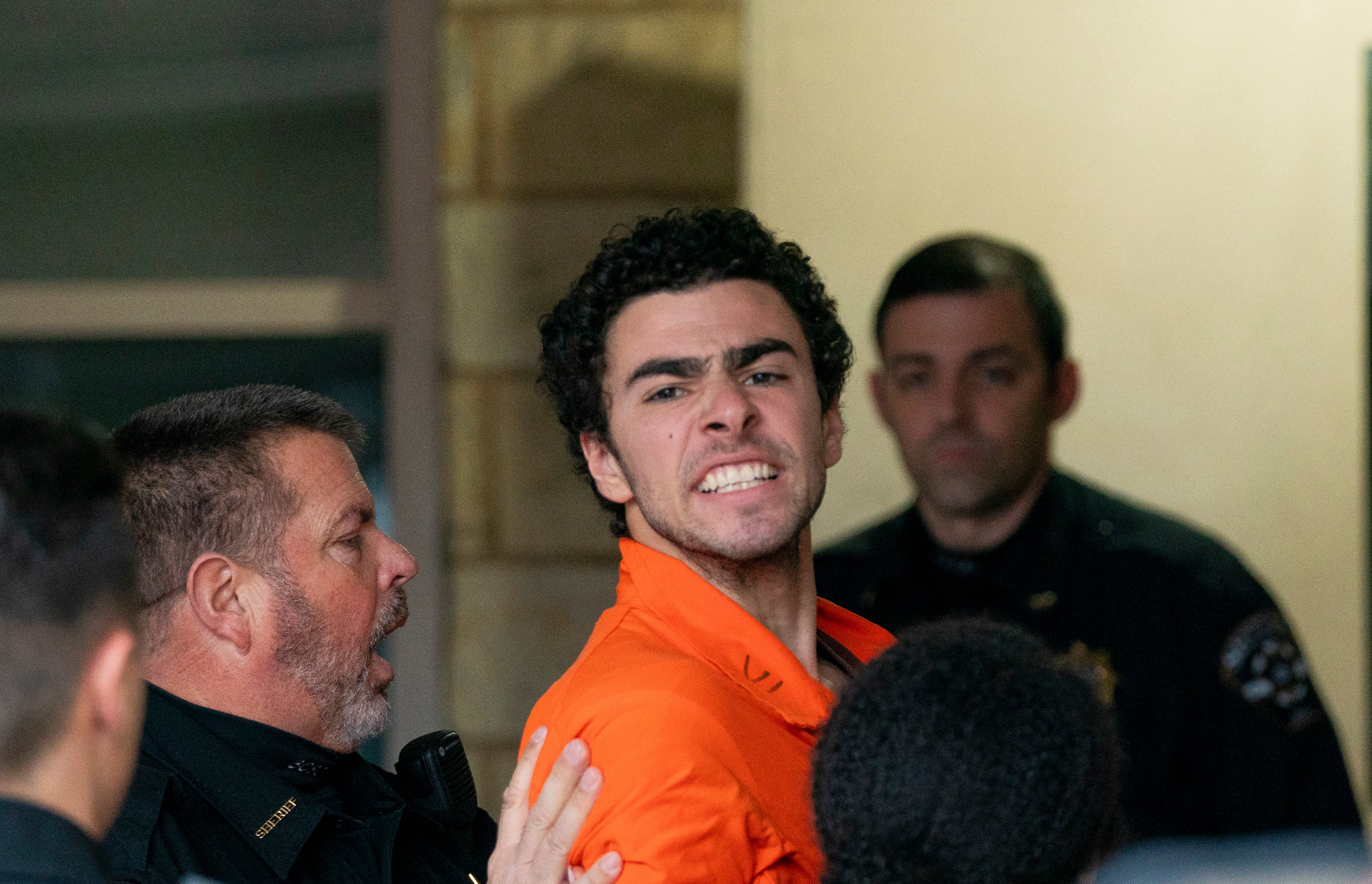Luigi Mangione and the dark truth behind our reaction to his arrest
Yes, internet sleuths helped police track down the suspect in the Brian Thompson case – but the reaction online since then has been less useful than it has salacious, writes Emma Clarke
Set with the task of tracking down a fugitive from the law, you can guarantee social media will track them down in record time – even if the only thing to go by is a small, three-inch gap between a mask and a hood. As was the case with the suspect in the fatal shooting of UnitedHealthcare CEO, Brian Thompson.
The NYPD released a set of images taken in the back of a taxi on Sunday, and within less than 24 hours, the internet had gleaned from the dark, bushy eyebrows alone that it was 26-year-old Luigi Mangione, a Baltimore-born graduate from the University of Pennsylvania, who comes from a prominent family.
But once found, the circus didn’t stop there. As well as identifying the suspect, social media sleuths tracked down his LinkedIn, Twitter – even his Goodreads – profiles. And just as fast came the memes, objectification and reactionary vlogs.
First, BookTok began analysing his taste in literature, questioning whether Harry Potter and the Hunger Games books “radicalised” him (in all seriousness, he did review the Unabomber’s manifesto, calling Ted Kaczynski “an extreme political revolutionary”).

Then things took an even sillier turn, when people started screengrabbing Mangione’s Twitter banner picture, which includes an image of Pokemon character Breloom, an X-ray of his spine and a topless snap of himself seemingly taken in Hawaii (his last registered address) – since dubbed a “thirst trap”.
But what does this tell us about the alleged killer? And, more importantly, is he single? I even saw one video claiming that Luigi would find itself on the most popular baby names list in 2025 – and depressingly, they might be right.
I love an internet quest as much as the next person – and am partial to a bit of doomscrolling. But when these trends and phenomenons move away from the issue at hand and glorify a suspected killer, that’s where I (and many others) should draw the line.
Regardless of your politics; your aversion to capitalism (the irony of him being arrested after visiting a McDonald’s was not lost on me) and personal experiences with the US healthcare system, a man still died in all of this – a man with children, a wife and family.

Beyond mourning their loss and navigating the prominence of the case, they will now, too, have to face the fact that the murder of their relative has spawned endless memes, unsavoury comments about the main suspect in the case and prompted an elaborate celebration by people who have too much time on their hands. On a human level, at least, that’s incredibly sad.
It must be said that social media isn’t always an aggravator in these cases. In 2012, it was thanks to internet sleuths that Don’t F**k With Cats killer Luka Magnotta was caught. It was also social media users who helped the police track down missing Gabby Petito in 2021, who was allegedly killed by her boyfriend Brian Laundrie – who later shot himself.
Nor is social media solely responsible for this glorification of a potential criminal. Yes, in 2014 there was the infamous Hot Felon craze, which stemmed from the viral mugshot of model Jeremy Ray Meeks and popularised the hashtag #feloncrushfriday. But before the birth of Instagram, TikTok and the like, there was a bizarre tradition of criminal adoration – from Ted Bundy and Charles Manson to Richard Ramirez. Hybristophilia (a sexual interest in those who have committed crimes) has long been rife in pop culture.
But too often, people on these platforms run away with themselves and get tangled up in conspiracy theories. They forget that real people are involved – as we’ve seen time and again with Elisa Lam, Nicola Bulley and others. The thirst for clicks and “engagement” overrules the desire for truth – often with hugely damaging effects and to the detriment of a live case.
To me, the response to Brian Thompson’s assassination perfectly summarises the year we’ve had. It demonstrates how starved of common decency and human compassion we are – how suspended from reality we’ve become.
Of all the things to unite people; it was this. And that’s something we should be ashamed – and scared – of.



Bookmark popover
Removed from bookmarks